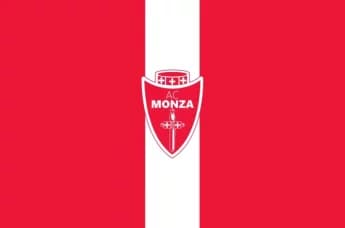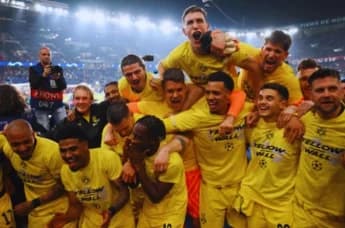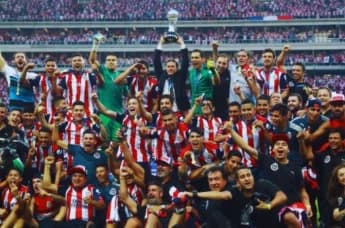Since its founding in 1899, FC Barcelona has transcended football through extraordinary achievements, cultural significance, and a commitment to youth development, shaping the beautiful game globally.
The narrative of Barça is deeply intertwined with its significance in Catalan society. More than just a football club, it embodies ideals of freedom, democracy, and unity, drawing a worldwide fanbase that resonates with these principles. The club's distinctive blue and red colors reflect a fusion of passion and loyalty, themes that are integral to the club's identity.
Currently, FC Barcelona is a symbol of exceptional football, cultural impact, and innovation, firmly anchored in its community while also having a worldwide presence.
Achievements of the Team
The trophy collection of Barcelona showcases its long-standing supremacy in global football. The club has achieved 27 La Liga championships, 31 Copa del Rey titles, and five UEFA Champions League trophies, including the remarkable sextuple in 2009—making it the first team to accomplish this milestone. Furthermore, Barcelona has shined in international competitions, securing three FIFA Club World Cups and four UEFA Super Cups. In the early 1900s, the club was a dominant force in tournaments like the Pyrenees Cup, laying the groundwork for its global stature.
The success of Barcelona extends beyond mere trophies. The growth of players such as Lionel Messi, Xavi, and Iniesta within their prestigious La Masia academy highlights their profound impact on footballing philosophy. These icons have shattered records and transformed the game through their exceptional skills and vision. Their accomplishments surpass just winning titles; Barcelona has redefined contemporary football with its distinctive style of play, establishing themselves as not just champions but as pioneers in the sport.
Strengths & Weaknesses:
FC Barcelona is renowned for its exceptional commitment to youth development, with La Masia being the birthplace of some of the most legendary players in football history. The club's emphasis on possession-oriented play and technical proficiency is key to its enduring success. Moreover, its extensive global fanbase and forward-thinking marketing strategies contribute significantly to its financial strength.
However, recent years have revealed various weaknesses. Financial troubles arising from poor management and costly transfers have placed a strain on resources. Additionally, the team has faced challenges in maintaining defensive solidity and adjusting to the physical demands of contemporary football.
At times, their dependence on individual talent can leave them vulnerable to well-organized teams that employ tactical discipline. Additionally, the regular changes in management have interrupted the club's continuity, making it challenging to implement long-term strategies.
Steps are being taken to rectify these issues; however, these obstacles emphasize the importance of a balanced strategy to maintain their success.
Tactics & Style of Play
Barcelona’s tactical framework is closely tied to the philosophies of Johan Cruyff, which were further developed during Pep Guardiola's tenure. Their signature tiki-taka style, marked by concise passing, exceptional spatial awareness, and aggressive pressing, has shaped a period of remarkable success.
The approach emphasizes maintaining possession of the ball, with players displaying poise even in high-pressure situations. The midfield, frequently guided by playmakers such as Xavi and Iniesta, controls the game's rhythm, while the forwards take advantage of openings with precise execution.
With the current management, Barça seeks to integrate their classic playing style with contemporary tactical adaptability. Their approach features high pressing and quick transitions that enhance their possession-based strategy, allowing them to respond to the changing nature of football. Although their playing style has transformed, the focus on creativity and technical prowess remains unchanged, ensuring that their identity is maintained in every game.
Memorable Matches
2009 UEFA Champions League Final: Barcelona achieved a 2-0 win against Manchester United in Rome, showcasing a brilliant display of tiki-taka football and securing their remarkable sextuple.
2010 El Clásico: The remarkable 5-0 victory over Real Madrid at Camp Nou marked a definitive demonstration of their dominance during Guardiola’s era.
1992 European Cup Final: Ronald Koeman’s legendary free-kick secured Barcelona’s first European Cup, ushering in an era of dominance in continental football.
2017 PSG Comeback: After losing the first leg 4-0, Barcelona achieved an astonishing 6-1 victory at Camp Nou, highlighting their determination and offensive prowess.
Looking Ahead
The future of Barcelona relies on finding a balance between their rich history and the expectations of contemporary football. The club is making significant investments in its facilities, such as the renovation of Camp Nou, to improve the experience for fans and increase revenue. The rise of young stars like Pedri, Gavi, and Alejandro Balde indicates a bright future ahead for the club. These emerging talents, alongside carefully planned signings, aim to bring Barcelona back to the forefront of European football.
Recovering financially is a key focus, with efforts aimed at stabilizing debts and improving spending efficiency. Furthermore, the club's dedication to sustainability and digital advancement helps it maintain a competitive edge. As FC Barcelona looks ahead, it remains committed to upholding its values, inspiring future generations, and carrying on its heritage as 'Més que un club.'
The narrative of Barça is deeply intertwined with its significance in Catalan society. More than just a football club, it embodies ideals of freedom, democracy, and unity, drawing a worldwide fanbase that resonates with these principles. The club's distinctive blue and red colors reflect a fusion of passion and loyalty, themes that are integral to the club's identity.
Currently, FC Barcelona is a symbol of exceptional football, cultural impact, and innovation, firmly anchored in its community while also having a worldwide presence.
Achievements of the Team
The trophy collection of Barcelona showcases its long-standing supremacy in global football. The club has achieved 27 La Liga championships, 31 Copa del Rey titles, and five UEFA Champions League trophies, including the remarkable sextuple in 2009—making it the first team to accomplish this milestone. Furthermore, Barcelona has shined in international competitions, securing three FIFA Club World Cups and four UEFA Super Cups. In the early 1900s, the club was a dominant force in tournaments like the Pyrenees Cup, laying the groundwork for its global stature.
The success of Barcelona extends beyond mere trophies. The growth of players such as Lionel Messi, Xavi, and Iniesta within their prestigious La Masia academy highlights their profound impact on footballing philosophy. These icons have shattered records and transformed the game through their exceptional skills and vision. Their accomplishments surpass just winning titles; Barcelona has redefined contemporary football with its distinctive style of play, establishing themselves as not just champions but as pioneers in the sport.
Strengths & Weaknesses:
FC Barcelona is renowned for its exceptional commitment to youth development, with La Masia being the birthplace of some of the most legendary players in football history. The club's emphasis on possession-oriented play and technical proficiency is key to its enduring success. Moreover, its extensive global fanbase and forward-thinking marketing strategies contribute significantly to its financial strength.
However, recent years have revealed various weaknesses. Financial troubles arising from poor management and costly transfers have placed a strain on resources. Additionally, the team has faced challenges in maintaining defensive solidity and adjusting to the physical demands of contemporary football.
At times, their dependence on individual talent can leave them vulnerable to well-organized teams that employ tactical discipline. Additionally, the regular changes in management have interrupted the club's continuity, making it challenging to implement long-term strategies.
Steps are being taken to rectify these issues; however, these obstacles emphasize the importance of a balanced strategy to maintain their success.
Tactics & Style of Play
Barcelona’s tactical framework is closely tied to the philosophies of Johan Cruyff, which were further developed during Pep Guardiola's tenure. Their signature tiki-taka style, marked by concise passing, exceptional spatial awareness, and aggressive pressing, has shaped a period of remarkable success.
The approach emphasizes maintaining possession of the ball, with players displaying poise even in high-pressure situations. The midfield, frequently guided by playmakers such as Xavi and Iniesta, controls the game's rhythm, while the forwards take advantage of openings with precise execution.
With the current management, Barça seeks to integrate their classic playing style with contemporary tactical adaptability. Their approach features high pressing and quick transitions that enhance their possession-based strategy, allowing them to respond to the changing nature of football. Although their playing style has transformed, the focus on creativity and technical prowess remains unchanged, ensuring that their identity is maintained in every game.
Memorable Matches
2009 UEFA Champions League Final: Barcelona achieved a 2-0 win against Manchester United in Rome, showcasing a brilliant display of tiki-taka football and securing their remarkable sextuple.
2010 El Clásico: The remarkable 5-0 victory over Real Madrid at Camp Nou marked a definitive demonstration of their dominance during Guardiola’s era.
1992 European Cup Final: Ronald Koeman’s legendary free-kick secured Barcelona’s first European Cup, ushering in an era of dominance in continental football.
2017 PSG Comeback: After losing the first leg 4-0, Barcelona achieved an astonishing 6-1 victory at Camp Nou, highlighting their determination and offensive prowess.
Looking Ahead
The future of Barcelona relies on finding a balance between their rich history and the expectations of contemporary football. The club is making significant investments in its facilities, such as the renovation of Camp Nou, to improve the experience for fans and increase revenue. The rise of young stars like Pedri, Gavi, and Alejandro Balde indicates a bright future ahead for the club. These emerging talents, alongside carefully planned signings, aim to bring Barcelona back to the forefront of European football.
Recovering financially is a key focus, with efforts aimed at stabilizing debts and improving spending efficiency. Furthermore, the club's dedication to sustainability and digital advancement helps it maintain a competitive edge. As FC Barcelona looks ahead, it remains committed to upholding its values, inspiring future generations, and carrying on its heritage as 'Més que un club.'







